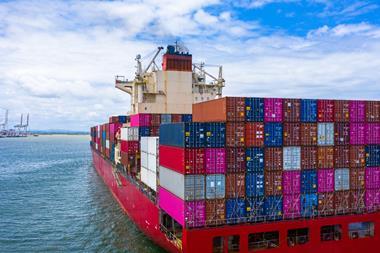As sustainable approaches burgeon in importance, risk managers have been urged to focus on recovery measures when disaster hits
While the number of loss events resulting from natural disasters has increased in recent years, ensuring an increasingly sustainable approach to risk management has similarly gained traction.
Speaking at this week’s PARIMA webinar, ‘Building Sustainability into Claims Supply Chain – Recovery & Loss Mitigation’, Anindeta Dewi, senior manager of claims at MSIG Asia, said that for risk managers and their sustainability goals, “it is better to pick recovery instead of replacement” for any assets damaged in disasters.
“There is a clear spotlight on organisations right now in terms of being responsible to our environment. Making the right choices to contribute and fight the ongoing environmental battle,” said Dewi. “Choosing recovery over replacement will definitely help in that sense.
“Even if the customer, for whatever reason, decides not to choose to use the machine at the end, the loss mitigation and recovery effort will help to elevate the salvage value of the property that is damaged, which will help the likelihood of the property to be bought and used by someone else and not just end up on a landfill,” said Dewi.
Commenting on how risk managers can approach supply chain issues, John Shanahan, country manager of BELFOR Thailand, said: “Immediate first measures are extremely important and ensuring that is plugged into a business continuity and disaster recovery plan.
“It is also important to understanding what the key constraints might be on recovering any equipment to enable them to reinstate operations as quickly as possible,” said Shanahan. “If the interruption is significant they may lose market share, they may lose contracts with customers, and it can even lead to the closure of their business.
“SMEs are the lifeblood of local economies and these kind of disasters can have tangible negative effects on the local community. If a business loses its contracts with a customer due to a disaster and it is not able to recover in a timely manner, then employees are often let go,” he said.
Dewi noted that environmental risks are the top critical threat to the world in the next 10 years, according to The Global Risks Report 2022. A finding that 70% of webinar attendees agreed with when polled.
“With the growing number of loss events resulting from climate-related disaster, insurers have the responsibility to implement sustainable practices as we respond to ongoing environmental risks and evolving customer expectations,” said Dewi.
“Claims in particular is well-positioned to engage with clients, and take on a leading role in the commitment to sustainability,” she added.
MSIG Asia and BELFOR Asia announced a new partnership on the webinar, providing disaster support recovery services in 16 markets across Asia.




















No comments yet